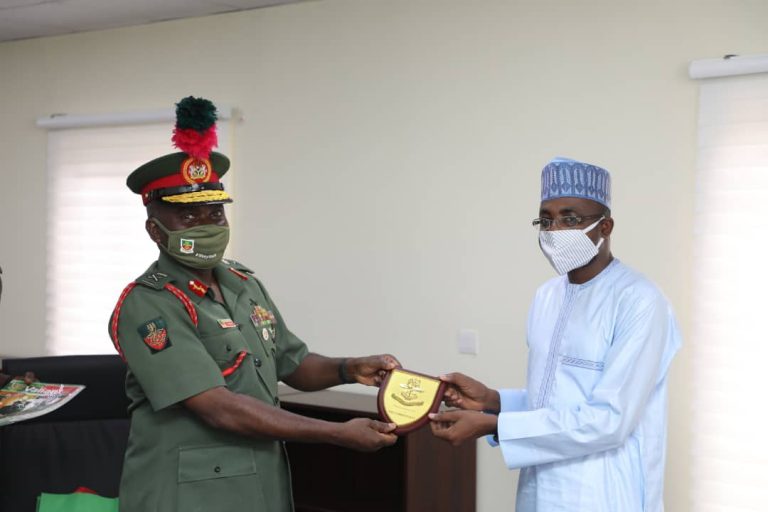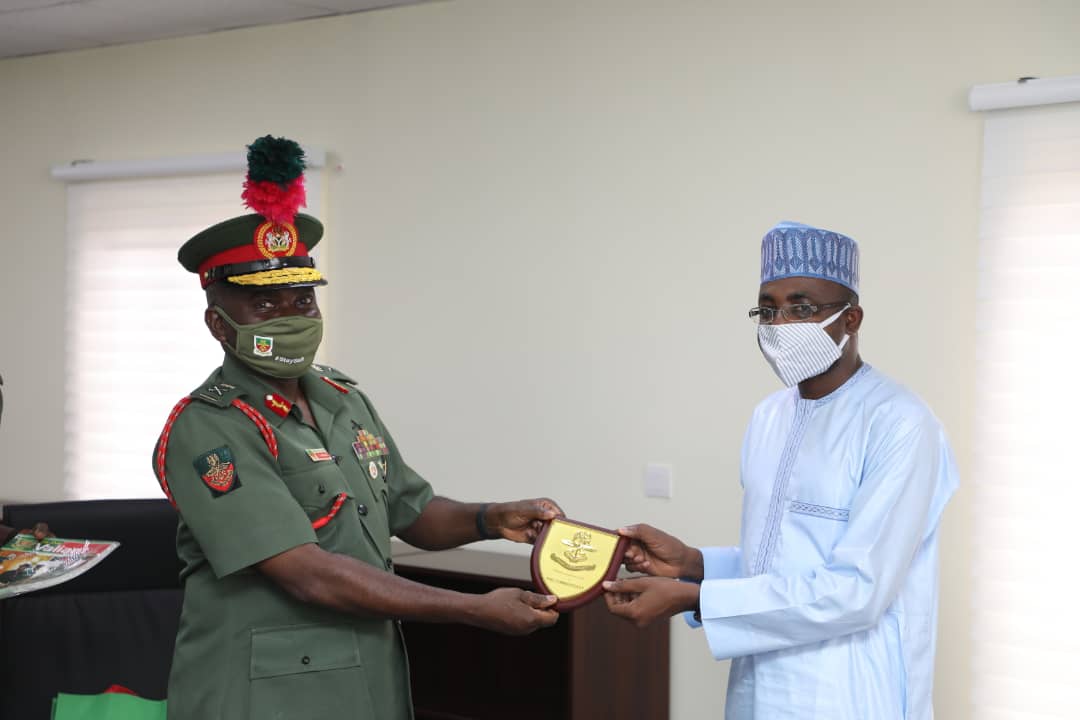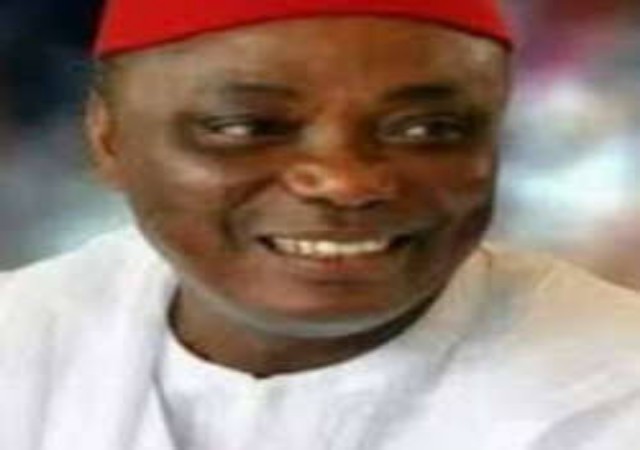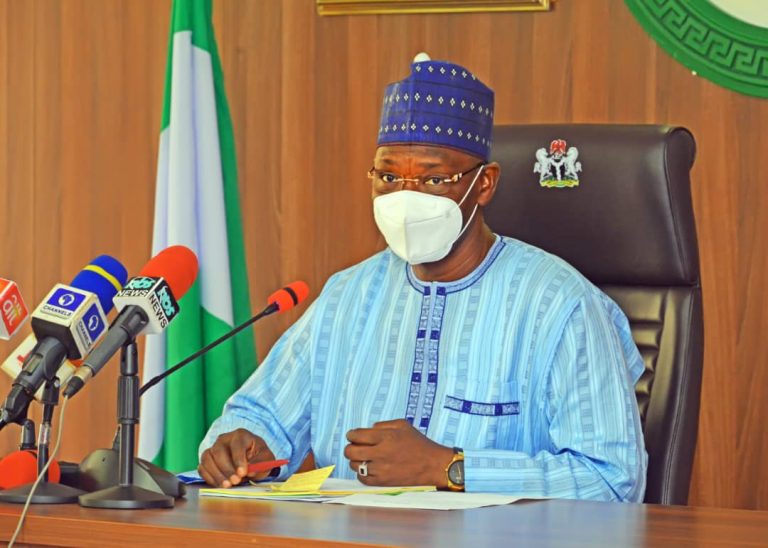The coronavirus pandemic has ravaged the global economy and impacted the international oil market. But, the Group Managing Director of the Nigerian National Petroleum Corporation (NNPC), Mele Kyari, says Nigeria is on course to realising its targets in the oil and gas industry.
In this interview, Mr Kyari said the government does not need the Petroleum Industry Bill (PIB) to proceed with deregulation of the downstream sector of the petroleum industry.
Excerpts:
PT: The coronavirus pandemic has thrown the global economy into disarray. How is it impacting the Nigerian oil and gas industry?
Kyari: COVID-19 pandemic is the most critical issue today in the world. It has elicited enormous reactions. There were lockdowns. Economies were grounded. Ultimately, we are where we are.
Today, even the largest corporation in the world, ExxonMobil, is being assisted by the U.S. government. A lot of other $1billion corporations are now beneficiaries of billions of dollars palliatives as bailouts. The pandemic has caused a lot of distortions to economies. What we have today is a recovery nobody can say how long it will last. In the oil and gas industry, it can take longer.

Today, countries are recovering gradually. People are going back to work. Economies are reopening. Airlines have started flying again. In all these, it will be tough for many economies, including ours.
The Minister of Finance has already hinted Nigeria is already heading towards another recession. There is no better way of saying it. We are having less money coming in and more things to do. It’s a simple relationship. Ultimately, the economic downturn is tough. As a country, we are managing it the best way we can. It’s tough. We are making changes to ensure we survive through this, like every country. No country is immune from it. None has a perfect answer.
PT: How is it impacting the NNPC?
Kyari: For the NNPC, we set out to sustain our operations despite disruptions and slowed down economic activities. We immediately activated our Business Continuity Plan to connect with our partners’ locations to sustain operations across the business value chain.
I can confirm to you that during this crisis and lockdown period, the NNPC became much more efficient and productive than it ever was. During this period, we saw our crude oil production climb to the highest level we have never seen in ten years. We hit about 2.4 million per day, before it went down. This is the change the COVID-19 pandemic brought to the industry.
We are studying around it to know what really happened. Is it that we resorted to the use of technology? Or there was less distractions? Or maybe the vandals and oil thieves went on holiday and therefore allowed the oil to flow into the terminals.
But, what I can easily point at is that our employees were working remotely, supporting the delivery of our business objectives and ensuring revenue flows to the federation and ensure the flow was sustained, cutting cost, and reducing budgets. I see the company becoming more efficient, by engaging our partners and asking for more cost discounts from our contractors, sometimes up to 40 per cent. Our target is to hit a cost per barrel of $10 to the barrel.
The National Energy Security Revenue flow has been greatly impacted by the fall in crude oil prices by about 65 per cent. This affected NNPC’s liquidity position and the anticipated remittances to the Federation Account of about N1.27 trillion between April and December 2020.
The crude oil price movement from 2015 was about $30 per barrel till about early 2016.
Until the crash happened, nobody saw it coming. It has never happened in the history of oil trading to have such a sharp collapse within so short a period, from excess of $60 per barrel in February 2020, to less than $13 in April.
What that means in terms of government revenue is declining inflow. The 2020 Budget was initially premised on $57 to the barrel. By March, it became clear the benchmark was not sustainable.
The budget was rebased to $30 per barrel. Government is still talking to the National Assembly. There is a potential of rebasing it further to $25 to the barrel. But, what is comfortable is to assume the year average of $30.
This will mean a number of changes to realities. Businesses have to readjust. Cost have to be reviewed. Expectations have to be cut down to the basics, to survive through this crisis.
Interestingly, as prices were going down, consumption also went down, obviously because of the lockdowns in many locations. So, all the oil vessels became storage facilities. That was how bad the situation got.
The other issue that is of serious concern to the NNPC is the cost of production per barrel. If we don’t bring down our cost, there will not be any tax revenues, and therefore the investment would become worthless. The end result will be that expectations will not be met and business will become something nobody would want to do.
In Saudi Arabia, one can produce oil at less than $5. Their reservoirs are very different from ours. One can lay the oil pipelines on the surface and nobody will tamper with it. The environment there is different from the Niger Delta.
But, that does not explain why some of our partners should be producing oil at as high as $93, $40, $30 per barrel in all terrains of our operations in both Production Sharing Contracts (PSCs) and the Joint Ventures.
When crude oil prices go to as low as $12 or $13 to the barrel, it means, technically, the operators are subsidizing crude oil production. Nobody does that anywhere in the world.
PT: So, what did the NNPC do?
Kyari: What the NNPC did was to engage to bring down the high cost. We negotiated contracts, cut down on contract’s life cycle; select the right projects; engage the right institutions to bring down the cost. Our ultimate target is to bring the cost to at most $10 per barrel.
This is achievable. But, it comes at a cost and huge challenges.
What that means is that we have to shut down some assets and confront very power people, who, either as businesses, individuals or institutions and agencies, have entrenched interest in making sure this does not happen.
With such people, the meaning is that we are paying about three times more than what we should.
But, I can assure you that at any cost, we will take steps to bring this cost down, so that our country will benefit and the oil industry will become a profitable business for the 200 million Nigerians, and not just for a fragment of the society committed to frustrating our efforts.
Otherwise, there are issues we have to confront. Our partners and international oil companies have issues. There are clear constraints to taking investment decisions.
PT: What are these constraints? And what are you doing about them?
Kyari: Like I said earlier, our major concern is high cost of oil production. Production maintenance costs account for about 80 per cent of JV and 60 per cent of PSCs operational expenses.
For instance, the personnel cost in this country is higher than any other jurisdiction in the world. This is unbelievable.
It has to come down. It has to be challenged. We cannot pay for more than we can afford. We cannot take cash flow from one business to practically subsidise other businesses. When prices are low, and one partner has cost of production of about $36 to the barrel, one should know one is subsidising the other. Some of them have sustained high profile over a long period of time.
Although oil production and sales are going on, in reality it is other businesses that are producing cheap oil at $11 or $10 that are doing it for them.
We have taken this challenge in. We have engaged. We are drawing the lines. We are changing the processes and procedures, and ultimately, there is no doubt that this will serve the common good of all Nigerians.
PT: How is the crisis impacting oil production? And how is Nigeria responding to the OPEC output cut agreement?
Kyari: Since our decision to participate in the OPEC+ output cut regime, we have a commitment to bring down our o production to 1.412 million barrels per day (BPD) between May and June and 1.495 million BPD between July and December 2020. Thereafter 2021, in January until April 2022, we will be producing 1.579 million BPD.
Since January 2020, crude oil production has remained at 1.81 million barrels per day, and condensate production averaged 250,000 barrels per day and 280,000 BPD.
This is not the total crude oil production. But what we did for crude oil and condensate within that period is about 2.16 million BPD. In April we were actually able to produce 2.4 million BPD.
This is very promising. Our target is to hit 3 million barrels, despite all these constraints, including the challenges in OPEC output cut. The projects are designed in such a way that many of them will come up between 2021 and 2022.
We know that this will be the right time to kick in the 3 million barrels per day agenda. This is very possible and realistic.
If we can make 2.4 million barrels now and we have a clear sight on a number of projects to bring incremental volumes in excess of 600,000 BPD, then that is clearly achievable. We are looking at all the possibilities of resolving all the issues around the OPEC cut. We have some projections on how we can have some form of exemptions, or any form of engagement.
Otherwise, at the end of our commitment with the OPEC output cut deal in April 2022, when most of the projects we have will come on stream, we expect to have an exponential jump in our oil production. We are very confident that we can swing it.
The other side of our projection is to increase production from our crude condensate fields. Condensate are exempt from OPEC oil quota computation.
We have a number of fields that are rich in condensate which we hope to increase production from those, so that we can arrive at the 3 million barrels per day without necessarily creating complications on our commitments to OPEC, even in the short term.
But, whenever crude oil price goes down, this is the right time to focus on solid minerals development. Solid mineral behaves the opposite way as crude oil market because of its own inherent stability that crude oil does not have.
PT: The last time, you spoke about the rising incidence of crude oil theft. What is the situation now?
Kyari: The monumental stealing of crude oil is still going on. About 30 per cent of lines between Atlas Cove all the way to Ilorin; about 30-40 per cent of the NNPC line between Port Harcourt and Aba, and sometimes about 60 per cent losses between Aba and Enugu. That is not acceptable.
We took some steps and engaged some security agencies. They have been doing a great work, particularly in the Niger Delta area and the Mosimi-Ibadan axis all the way to Lagos. The result is that today we have brought down the losses, particularly on the Atlas Cove-Mosimi line to less than 5 per cent. It has never happened.
But, this happened, because we have the support and engagement of the security agencies with a clear directive from the president to the NNPC to bring the situation down to the barest minimum.
But, there are still issues. We still have 71 per cent of crude oil pipeline breaches this year alone, and losses in excess of $48million, from about $755million in 2019.
PT: What’s the update on oil exploration in Inland basins?
Kyari: As you must have heard, we have found oil in the Benue Trough. This is a monumental milestone. This is the result of over 40 years of efforts in the Chad Basin and other inland locations, like the Anambra platform.
We are proud we have found oil, not because oil can be used today, but because the possibility is there to produce oil and develop communities and shorten the access to power, as power plants could be created around these locations.
We have drilled the first well successfully. We are drilling the second. When we are done, we will allow our development partners to proceed from there.
Otherwise, we are continuing our effort in all the inland basins into the Calabar embankment and Anambra platform, the lower Benue Trough and the Bida area.
PT: Recently, you announced the end of fuel subsidy, which signal led the commencement of the deregulation of the downstream sector of the petroleum industry. But, critics say it appears we cannot proceed without a legal framework as the PIB is still not passed. How do you respond to this?
Again, what will be NNPC’s role in the the price modulation mechanism under the deregulation?
Kyari: You don’t need the PIB to go ahead with the deregulation. This is purely a policy issue.
NNPC will be one of the companies that would be regulated. There will be an oversight by the regulator over the NNPC itself as a business and one of the players in the market.
I will not speak to the issue about NNPC’s role under the deregulated environment. I also did speak about liberalizing the price of PMS (premium motor spirit) for the simple reason that the NNPC is in the receiving end.
I am aware that government has agreed to liberalise the prices of petroleum products as the market should be allowed to determine the prices.
NNPC kept the stock of all the petroleum products. Between 2015 and 2016, only a few companies imported PMS into this country. They were doing it at a cost, including the integrity of the company itself, talking about allegation of fraud in the oil and gas sector and the fuel subsidy regime at the time.
Sometimes, there was as much as N40 billion under-recovery per month. Sometimes it went above N100billion when crude oil price went up to $73 per barrel. Average subsidy per year was about N800 billion, or close to N1trillion in direct subsidy from government cost.
Then, there is another hidden cost, which is the cost of foreign exchange used in doing the importation. Government used to give importers foreign exchange at N305 to the dollar at the regulated foreign exchange rate by the Central Bank, which the NNPC declare value to the Federation.
In combination of the difference with the open market rate, one will be seeing exposure in excess of N2 trillion in a year where the average price of crude oil is in excess of $55 to the barrel. That could have been used for anything else in the economy. But, that is subsidizing the elite. We cannot continue that way.
When some people say deregulation should be included in the PIB, I don’t agree. It is a policy matter. We do not need a PIB to liberalise the prices of petroleum products. It was never in any law that we must have the price of petroleum products in the law. It does not exist.
I agree the Petroleum Products Pricing Regulatory agency should oversee the price modulating mechanism.
The price modulation is simply a mechanism that will ensure the ordinary people are not exploited. It is mechanism that gives guidance so that people don’t do what they should not do, which is to sell at prices that are out of the market.
No country folds its arms and allow the things to go wrong before intervening. Even in advanced countries where there is liberal economies, there is some form of regulation in the context of nobody being given subsidy. But one cannot do things one should not do.
If the product is produced here, market forces will naturally prevent you from selling at any price that you want.
But, we are not a regular economy. We have transportation issues and other hindrances to the movement of products across the country. That means we will continue to have institutions around that will ensure we get the right price in the market. Yes, engagements with stakeholders are necessary, but, it is a policy issue. The solution is to have alternatives in the form of compressed natural gas that will make fuel cheap in the country.
That is why we are pursuing a national gas policy that will help provide the alternative.
Gas brings national development. It is the biggest enabler. Oil brings cash, but gas brings development through power, industries and other things that are built around gas. We are focused on delivering a number of projects.
PT: What projects do you hope to use to realise your targets?
Kyari: Gas delivery to the western axis into Lagos and across to the West African sub-region. Today, the quantity of gas supplied is not sufficient. What we are doing is the combination of the expansion of the Escravos-Lagos Pipeline and the OBB3 to additional volume of gas to our network.
What kept us from realising this is crossing River Niger with pipeline. Two or three previous attempts failed.
Finally we have gotten a solution. I can assure you that before the end of August, we will cross River Niger. That will kick in about one billion standard cubic feet of gas to also enable the Trans-Nigeria pipeline, all the way from Kano called Abuja-Kaduna-Kano line, which is an extension of that line from Ajaokuta.
This will open the possibility of increasing the supply into the ELPS line, which could not be done until the capacity is expanded.
We have achieved significant progress on that. We have a financial closure. The NNPC has started the project on its own. We have moved pipes to five locations. We will start construction by June. Maybe by middle of 2022, our target for the completion of the AKK pipeline, we hope the OBB3 line will be commissioned.
Today we have 23 gas-powered plants with installed generation capacity of about 9,764 MW and availability generation capacity of 5,352 MW and the contracted gas to be paid for is about 1,499 million SCF per day.
Culled from Premium Times











